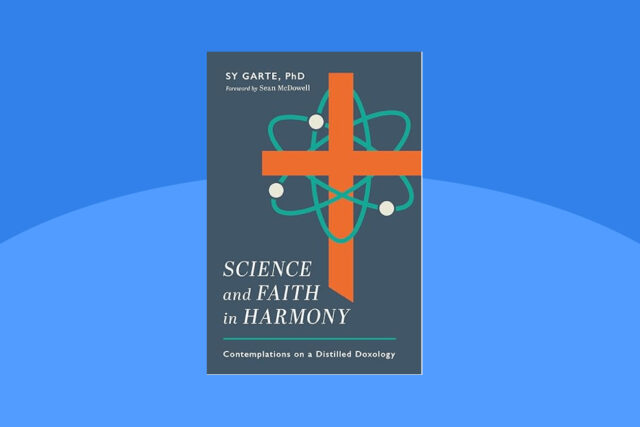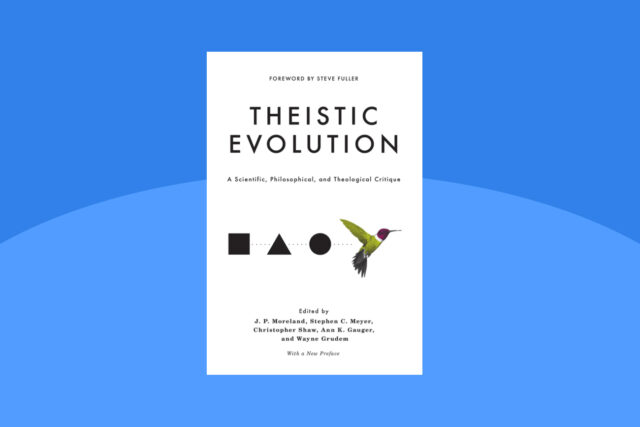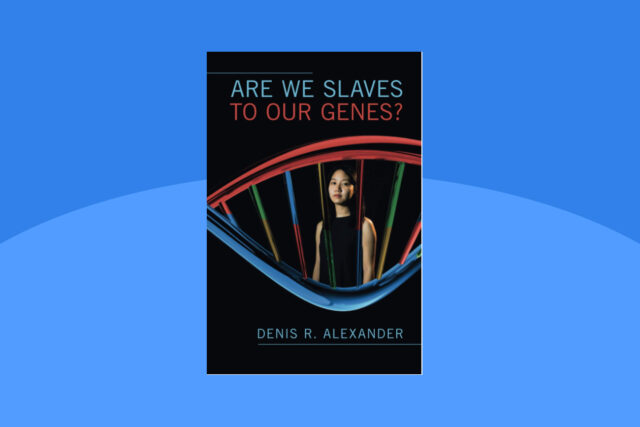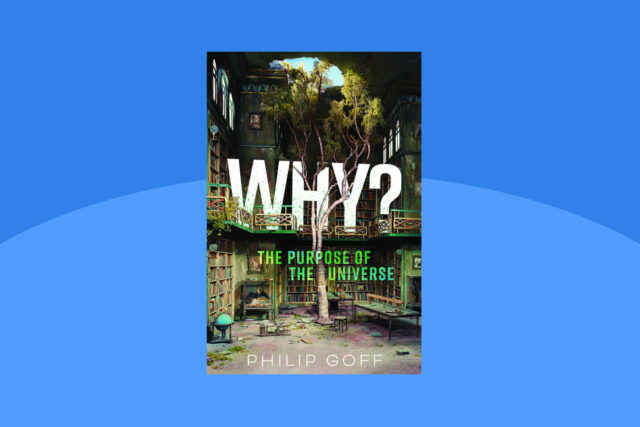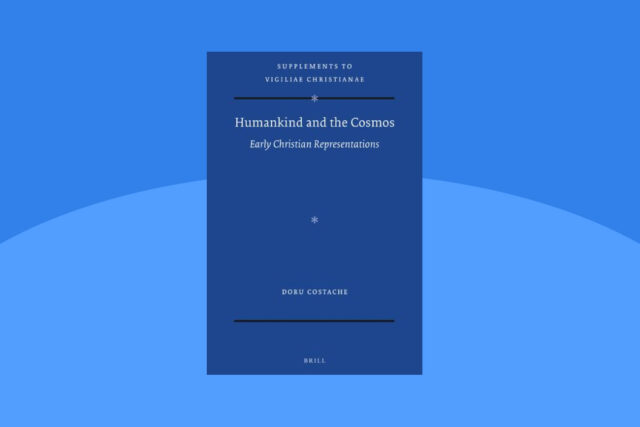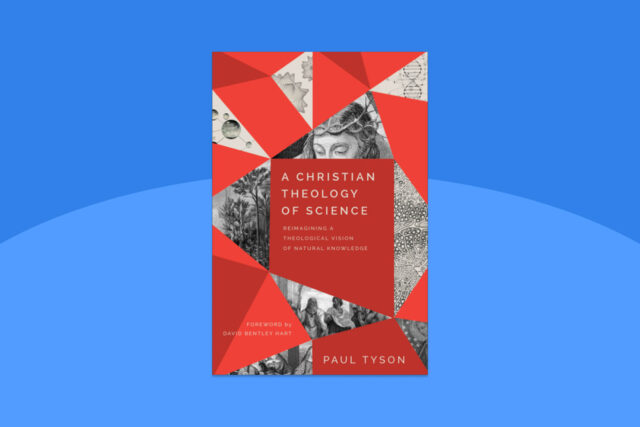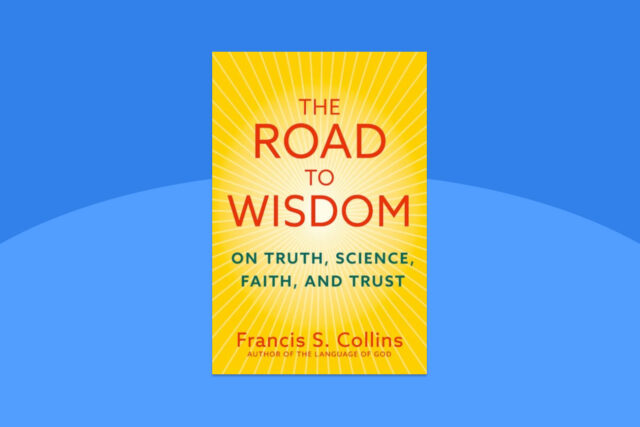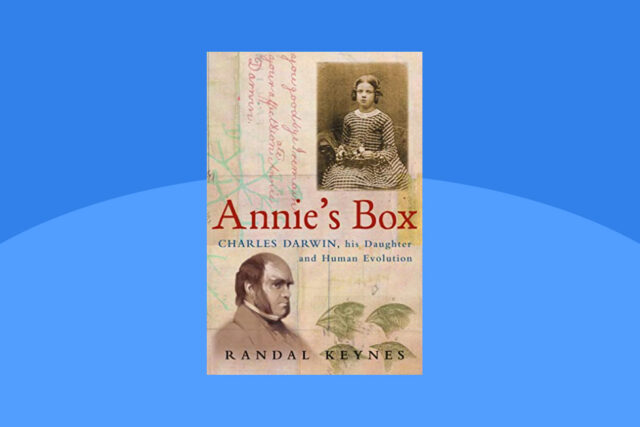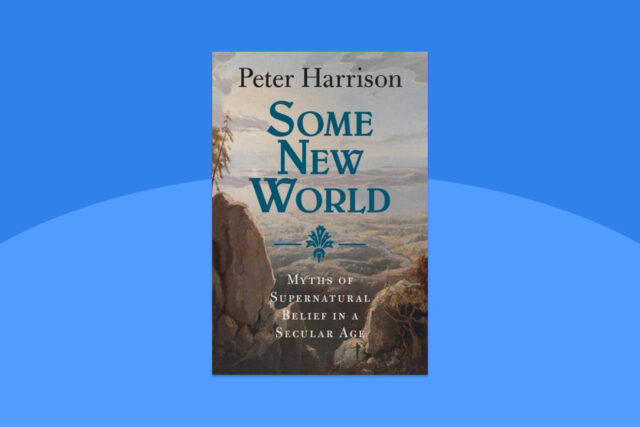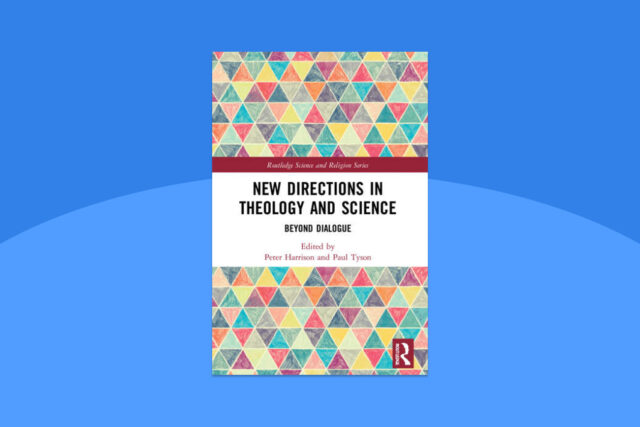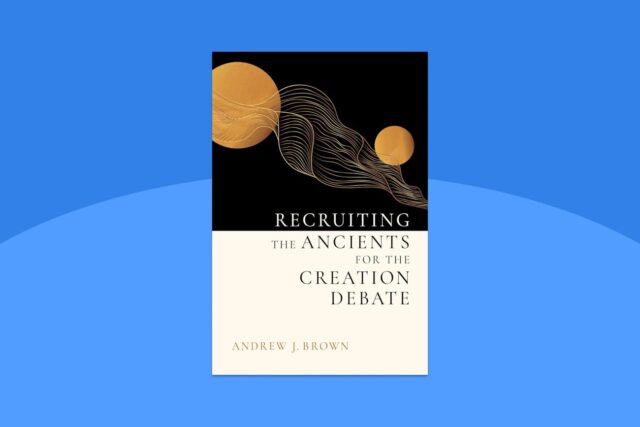
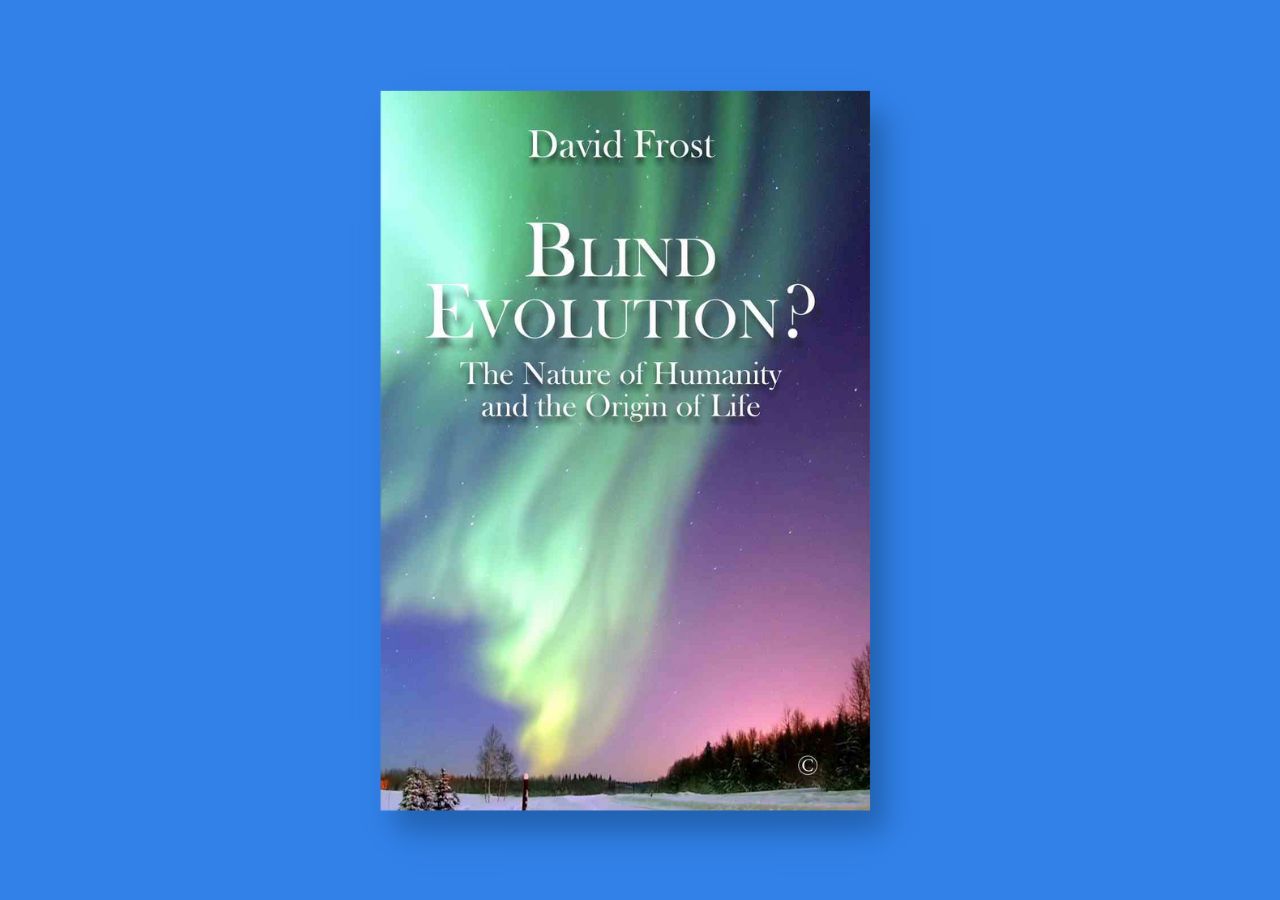
Book Review by Peter Stork, April 2022
Blind Evolution? The Nature of Humanity and the Origin of Life
by David Frost
Cambridge, UK: James Clark & Co, 2020
ISBN 9780227177112, 176 pages, paperback
AUD$80
David Frost’s Blind Evolution? addresses a longstanding and still hotly debated controversy about Christian attitudes to science. His primary purpose is to carry the day in what he calls a “‘boots-and-all’ attack on atheistic Neo-Darwinism,” especially its claim that life in all its variation has occurred solely by directionless (and in essence) meaningless chance. Grounded in a deeply held conviction that the Christian God is the creator of all that exists, Frost’s aim is not only to undercut the supposed validity of these claims but even more the credibility of their chief advocate, former Oxford Professor Richard Dawkins, well-known for his scathing attacks on theistic religions, whose book The God Delusion sold over 3 million copies.
Frost’s second motive is pastoral. He wants to offer his readers a more evidence-based answer to life’s deepest questions, especially the question of undeserved suffering, in place of Dawkins’ unbelief-fostering and hope-destroying agenda. Hence, he emphasises that science alone is not the whole truth.
Professor David Frost taught English literature and religious studies at several universities, including St John’s College, Cambridge, UK, and the University of Newcastle in Australia. On his retirement, he returned to Cambridge as honorary Principal of the Institute for Orthodox Christian Studies. His research and publications centred on literary subjects like Shakespeare, seventeenth-century English drama, liturgical works like a new translation of the Psalms, and the liturgy of St Chrysostom. The book under review is Frost’s first and only work in its genre. Frost aligns himself with the Intelligent Design Movement (IDM) in the creation-evolution debate.
A quick look at his text reveals some intriguing clues about his approach. Frost does not analyse data or explicate published scientific papers but offers mostly anecdotal evidence in keeping with his view that truth can also be found in poetry, dreams, visions, and, of course, in the Christian scriptures. Lengthy expository passages alternate with reports of dreams and personal emotional states amplified by liberal use of poetry, biblical quotes, descriptions of photographs, occasionally laced with satire and ridicule towards his interlocutors. The book features nearly sixty photographic illustrations and one full-page cartoon, which shows Richard Dawkins on the lookout of the “Ship of Fools” on a perilous voyage, with sails in tethers, flying a pennant saying, “There is no God.” Other caricatures onboard depict the Pope (asleep), Anglican, Catholic, Orthodox, another clergy, a philosopher, a scientist, and a meditating Buddhist. Similar sarcasm is reserved for Charles Darwin: “How can a competent biologist like Darwin be so daft?” (p. 31). His composition engages a blend of styles, ranging from journalistic to lyrical and novelistic, all in the service of the book’s announced thrust of defeating his opponents, often leaving it to the reader to discover the connection.
There is much in this book a thoughtful Christian can agree with. The radical materialism of Richard Dawkins deserves to be debunked by calling it out in its many disguises, including the hard-line Darwinism Frost seeks to falsify. To that end, he engages first in the standard rebuttals that materialist evolution is insufficient and misleading to explain, let alone generate features necessary for life like novelty, complexity, ecology, regeneration, etc. His second line of attack consists of his (or IDM’s) claim that “what looks like design is designed” inferring that a supernatural agency or “intelligent designer” provided the blueprint and assembled the elements we observe as “irreducible complexity” in nature. Proponents of the IDM claim that specific complex biological structures and functions, like the eye, are best explained by an intelligent designer, not by the seemingly directionless process of natural selection.
Frost rightly argues that, notwithstanding its many benefits and vast explanatory reach, the scientific method (which he endorses as a God-given tool to discover how the world works) is nonetheless limited to what it can describe and measure. Therefore, science alone cannot fully account for reality, contradicting the materialist claim that science is the whole truth.
According to Frost, what is lacking is a more thoroughgoing understanding of “truth” that should include another, much older form of knowing, the knowing by intuition, insight and inspiration, by anecdotes, poetry, prayer, prophecy, and (biblical) revelation —nous in Greek. Against the claim of a materialist culture that rejects this kind of knowing as unverifiable, Frost advocates that the scientific method plus nous is the only reliable path to the “whole truth” (about God and the creation) and thus for trust in the goodness of God when faced with inexplicable circumstances and undeserved suffering. From a Christian perspective, these are highly commendable aspirations, albeit not without their own hermeneutical problems which Frost leaves untouched.
This outline of Frost’s approach to delivering what he considers his knock-down case against Dawkins and Darwin prompts the question of whether or not he has achieved his aim, which in his own words includes the collapse of Darwin’s “house of cards.”
Frost has chosen the right target to attack a worldview that offers only hopelessness (because its universe and its human inhabitants are nothing but chance-driven, mindless matter). However, going to battle by setting one belief structure against another can only lead to a clash of two sets of mutually exclusive presuppositions and thus to a futile escalation of hostilities. Throughout the book, Frost ties Darwin’s work to the twentieth-century version known as Neo-Darwinism and Dawkins’ atheistic dogmatism. This unfortunate conflation has three troubling effects: it renders “evolution” synonymous with the promotion of atheism; it takes Frost close to committing a severe category error; and it gratuitously revives the outdated “combat model” of the theology/science discourse.
Frost’s a priori rejection of evolution makes him miss the point that Darwin’s concepts, although not fully developed at their original formulation, represented a paradigm shift in developmental biology that continues to bear fruit. The scope of “evolution” is still evolving, representing today a global, multi-disciplinary research programme of ever-widening purview ranging from genetics to consciousness studies. Frost also omits to mention that the biological sciences themselves have begun to break with traditional Darwinism by distinguishing between mutations and natural selection while acknowledging that environmental pressure has been found to work on both in its own way.
Lastly, Frost offers Intelligent Design as the only plausible explanation for the complexity and variety of the natural world. Although the implied “designer” is not necessarily the Christian God in this conception, Frost forges a close link nonetheless, inviting the theological objection that the doctrine of God as Creator calls for a more far-reaching description. Karl Barth, for instance, devoted two thousand pages in his Church Dogmatics to the doctrine of creation.
More broadly, Frost sets out to address questions of ultimate reality, yet his view of evolution remains narrowly earth-bound. What seems to escape him is the cosmic dimension of the evolutionary paradigm that has guided scientific inquiry already for several decades across a widening spectrum of disciplines. Frost’s narrow conception affirms a deep-rooted Christian view that the creator brought forth finished products (the earth, animals, humans, stellar objects), blinding us to the process nature of creation. Yet, modern science discovers it at multiple levels of analysis, from quantum states to biochemistry and beyond. Here we find contingent possibilities instead of individual entities as IDM and some Christian traditions claim. There is even a biblical warrant for such reading if the multiplicity of Hebrew meanings in Genesis 1:1 is given its due. If this conception were adopted, mutations can no longer be called blind, meaningless, and directionless. Instead, they can be understood as contingent and exploratory structures of adaptation that exist (theologically) in response to the divine promise of an ultimate consummation.
In conclusion, Frost’s commendable campaign against the militant materialist interpretation of developmental biology for all its strengths turns out to be less watertight than his purpose statement first suggested. Remaining wedded to the combat model, Frost also deprives the Christian imagination of the possibility of rising above the cramped frame of Neo-Darwinism, holding Christianity back from the urgently needed creative interaction between the data of modern science and the insights of Christian theology.
